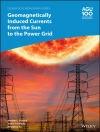Groundwater Dependent Ecosystems (GDEs) frequently exhibit rich biological diversity and can provide enormous economic wealth. In recent years, GDEs in many industrialized countries have shown signs of serious degradation, primarily the result of groundwater abstraction and pollution. Many such systems, including a number of well documented cases in Eastern Europe, are no longer sustainable. As a consequence, the conservation and sustainable management of GDEs has emerged as one of the most urgent environmental research priorities of our time. A large percentage of the world’s population lives in cities and either depends on, or is affected in some way, by groundwater. Moreover, groundwater has become a very important and complex issue that attracts the interest of many diverse stakeholders. Many problems related to groundwater and ecosystems are shared by countries throughout the world and there is growing recognition that much can be gained by co-operation on an international scale. This is no time to be complacent and it is critical that key problems be identified, that the potential consequences of these problems be understood, and that the development of solutions begins urgently. Important data gaps must be recognized and filled without delay
विषयसूची
Remote sensing techniques to monitoring coastal plain areas suffering from salt water intrusion and etection of fresh water discharge in coastal, karstic areas: case studies from greece.- Effects of fly ash from coal-burning electrical utilities on ecosystem and utilization of fly ash.- Groundwater age: a vital information in protecting the groundwater dependent ecosystem.- Groundwater in semi-arid mediterranean areas: desertification, soil salinization and ecosystems.- Assessment of vulnerability of water resources to climate change: ecohydrological implications.- Predicting probable effects of urbanization on future ecological integrity in the upper illinois river basin, USA.- Geochemical modelling of geothermal fluids – application of the computer program SOLMINEQ.88.- Ground water vulnerability assessment for intermontane valleys using chu valley of kyrghyzstan as an example.- Surface/subsurface interactions: coupling mechanisms and numerical solution procedures.- Ground-surface water interactions and the role of the hyporheic zone.- Ground water management at irrigated lands of uzbekistan and its influence on ecological system.- Improved groundwater management strategies at the amu darya river.- The impact of groundwater production and exploitation on ecosystem in azerbaijan.- On modelling of ground and surface water interactions.- Nitrogen leaching in an aquatic terrestrial transition zone.- Interactions between groundwater – surface water and terrestrial eco-systems.- Natural water supply and fertilization interactions on crops yield in fragile agroecosystem.- Groundwater fluxes in arid and semi-arid environments.- Water management in thessaly, central greece.- Modeling of heavy metal contamination within an irrigated area.- Using of groundwater for increasingof water supply of irrigation systems in arid zone.- Groundwater modelling in atlantic coastal ecosystems (south portugal).- Global change, its impact on functions of aquifer systems and their dependent ecosystems.- The vulnerability of groundwater dependent ecosystems: a study on the porsuk river basin (turkey) as a typical example.












